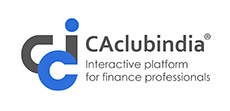Overview
In a business every decision made has financial implications, and any decision which involves the use of money is a corporate financial decision. In short, every activity that a business does fits under the rubric of corporate finance.
Key Objective
The objective of this workshop is to help maximise firm value which is at the heart of corporate financial theory
VCCircle Training’s workshop ‘Corporate Finance – Latest in Private Equity, Debt & Valuation’ will help you understanding the mechanics and strategies behind the different types of corporate financing activities.We will start the discussion by listing the fundamental principles that underlie corporate finance—the investment ,dividend principles and financing. This workshop would discuss current scenario in Private Equity, Debt and Corporate Valuation. We will discuss in depth topics with case study and latest happenings in the field of Corporate Finance.
Benefit of Attending
A complete practical guide to the mechanics of Corporate Finance. Participants will learn -
-
To understand complete Transaction Life Cycle in Private Equity
-
To understand the do’s and don’ts of negotiations
-
To appreciate the role of financial planning in the development of the corporation
-
To realise the synergy between financial planning and business strategies
-
To understand how certain structural features/provisions in a debt issue can result in higher credit ratings
-
To learn techniques of valuing invisible
-
To identify appropriate valuation techniques for unusual situations while going private
-
To provide insight on the modern day emphasis on corporate governance and asset management
Who Should Attend:
-
Venture Capitalist to understand the changing Financing pattern and factoring the same in the valuation of the company
-
Consulting companies to understand the trend in the market
-
Decision makers on major investments and expansions
-
Executives responsible for strategic business planning and development
-
Financial Advisory companies to advise the client in the light of such changes
-
Bankers dealing with the large corporate accounts
-
Executives handling treasury managementAcademicians of Business Schools and Universities
Agenda
Session 1:Introduction to Corporate Finance
-
The company lifecycle and the role of corporate finance
-
Major categories of transactions
- Growth funding – venture capital and private equity
- Debt funding
- IPO
- Mergers and acquisitions
-
Role of advisors versus in-house team
Session 2: Private Equity - The Transaction Lifecycle
-
Some characteristics of a private equity transaction
-
Preparation for the transaction
- Business planning
- Valuation and its implications
- Transaction structure and its implications
- Internal MIS and accounting – preparation for due diligence
-
Selection of advisors
-
Valuation methodologies
-
Approach to investors
-
Negotiations – do’s and don’ts
-
Legal documentation – important aspects such as reps and warranties
-
Closing procedures
Note: Case studies with latest example from Industry will be discussed.
Session 3: Capital Structure and Working Capital Funding
-
Capital Structure – Introduction and Relevance in a business
-
Working Capital Funding
- Sources of working capital funding
- Management of working capital(Cash Management, Inventory Management, Short Term Financing)
- Importance of Cash Conversion Cycle
Session 4: Aspects of Debt Financing
-
Types of Funding Arrangements & Debt Products - Bank Credit Facilities (Consortium Arrangements Vs. Multiple Banking Arrangements); Term Loans Vs. Revolvers; Bank Debt Vs. Corporate Bonds
-
Key Debt Terms – Does the amount, currency, maturity, drawdown and amortization profile of the debt match the underlying operating cash-flow profile of the borrower?
-
Structure Matters - Understanding how (and why) certain structural features/provisions in a debt issue can result in higher credit ratings and lower cost of debt.
-
Understanding the Indian Regulatory Landscape– Summary of RBI Regulations
-
Navigating the Covenants Minefield— While financial covenants are easily understood and tracked, each debt document also brings on board a host of Negative Covenants or restrictions that can limit the company’s business and financial flexibility (such as restriction on debt incurrence, liens, sale of assets, dividend capacity, share buyback, change of control, cross-default, cross-acceleration clauses). A breach may have the potential to bring down the capital structure like a house of cards. Also, any subsequent amendments to these covenants (whether embedded in bank credit agreements or in bond indentures) often come at an added cost in the form of waiver/consent fees.
Session 5: Valuation: Bridging the Gap between Theory and Practice
-
Introduction to valuation
-
Types of valuation
-
Techniques of Valuation
-
Selecting Right One!!
-
Introduction to Intangibles: Most valuable but still invisible
-
Techniques of valuing invisible
-
Unique situations
-
Key takeaways
Our Sponsors & Partners



Venue :
Taj President, Mumbai
Vivanta by Taj – President
Mumbai.
Do you have any queries?
Drop us a line and we will call you.



